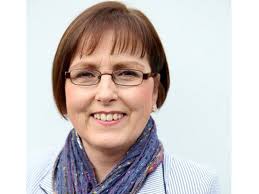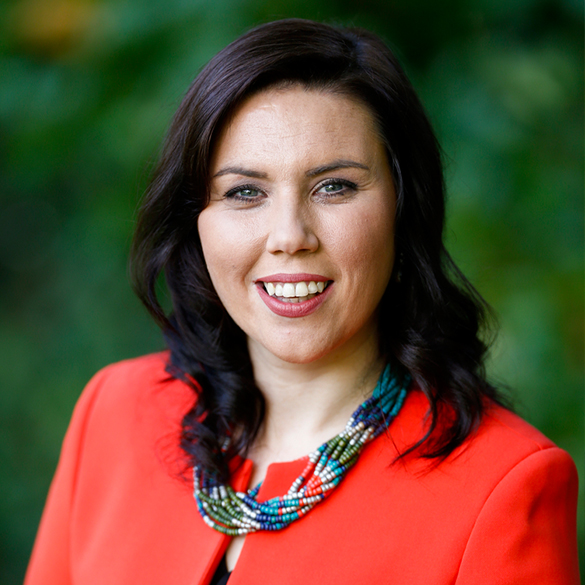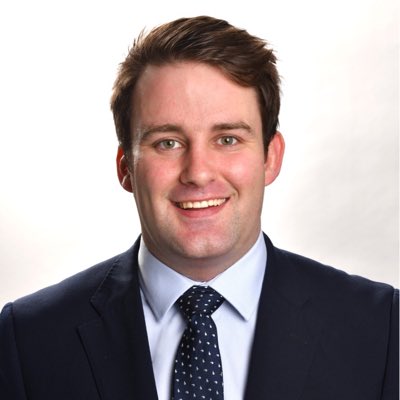
Dundalk councillors share views on female representation in local politics
With women currently taking up less than a quarter of the seats on Louth County Council, the Dundalk Democrat spoke to some Dundalk councillors to get their perspective on gender balance in local politics.
“The situation is definitely improving in relation to gender equality", says Green Party councillor Marianne Butler(pictured above).
“When I ran for Dundalk Town Council in 2009 of the 27 candidates only three were women. I found myself the only woman elected to Dundalk Town Council, it had twelve seats - I was all of 8%.
“I was later joined by Jennifer Green and Maria Doyle. Louth County Council after the 2009 elections had two women members, both Sinn Fein.
“That worked out at 7.7%; when I joined Louth County Council in 2010 I brought the numbers up to three and the percentage up to 11.5%.
“25% today is definitely a huge improvement.
“If you look at my own ward of Dundalk South it is certainly leading the way, in 2014 returning four women in a seven seater - 57%.
“After 2016 five out of seven seats are held by women councillors which equates to over 70%. I would hazard a guess that that might be a bit of a record nationally.
“Gender quotas introduced by the then Green Party minister Mary White have definitely helped. As has the work of organisations like Women for Elections.
“I would like to see more women as Cathaoirligh (Chairman), there has just been one woman Chair of Louth County Council (Jacqui McConville FF).
“I do see this happening in the next council. We have had many women leas Cathaoirligh (Vice chairs) since 2014, Maria Doyle (current) Dolores Minogue and myself”, Cllr Butler concludes.

Independent Alliance Cllr Maeve Yore(above) shared her own views on female representation saying, “I don't care what gender elected reps are once they are passionate, persistent and positive about Our County.
“We need more people who care about our towns, villages and people and less who care about their 'ticket to being a TD', allowances and photo opportunities.
“I know plenty of strong independent women who could make a positive difference in Louth and I'd encourage them to 'feel the fear' and enter the political arena Local Elections on 24th May.
“I would help and support them in any way I could. I don't see the same courage to do the same in our men!”, Cllr Yore added.

Sharing her views on the current situation in Louth, Fianna Fáil councillor Emma Coffey(above) said:
“I agree that Louth are fairing a bit better on the female representation on the county council but still is nowhere near the 50/50 split that would be more appropriate.
“But I do believe that with the gender quota system for GE's this has put a focus on encouraging women to enter politics.
“I would like to think thought that my own electoral area of Dundalk South is bucking the trend in that there are five female outgoing cllrs seeking re-election for seven available seats!”
Cllr Coffey continued, “Within my own party one can see the changes happening not only locally but also nationally. In the 2014 local election there were no female candidates, this time there are two out of nine running in Louth, still not the 50/50 figure, but an improvement.
“I would hope that women seeing this step from all parties of putting women forward for election and indeed women actually taking the daunting step of going forward to stand for election, encourages many more to enter politics.
“It can only be a good thing for democracy that both men and women’s approaches, contributions and views are expressed in Leinster House and our council chambers up and down the country”, she added.

The push to increase female representation in public office, within his own party, is acknowledged by Cllr John McGahon (above).
“Fine Gael in Government has done more than any other party before, it in terms of gender equality in politics”, says Cllr McGahon.”
“In the Local Elections of 2014, we ran the highest number of female candidates ever to feature on a Fine Gael ticket.
“The party gave every possible support to these female candidates in their electoral bids, including training and mentoring specific to the challenges faced by women in politics.
“This approach resulted in Fine Gael having more women elected than any other party in that election - 21% of our Councillors were female.
“At present, 26% of our local elections candidates are female with a number of conventions and additions around the country still to be held so I would expect this percentage to increase close to 30%”, the local councillor added.
Subscribe or register today to discover more from DonegalLive.ie
Buy the e-paper of the Donegal Democrat, Donegal People's Press, Donegal Post and Inish Times here for instant access to Donegal's premier news titles.
Keep up with the latest news from Donegal with our daily newsletter featuring the most important stories of the day delivered to your inbox every evening at 5pm.